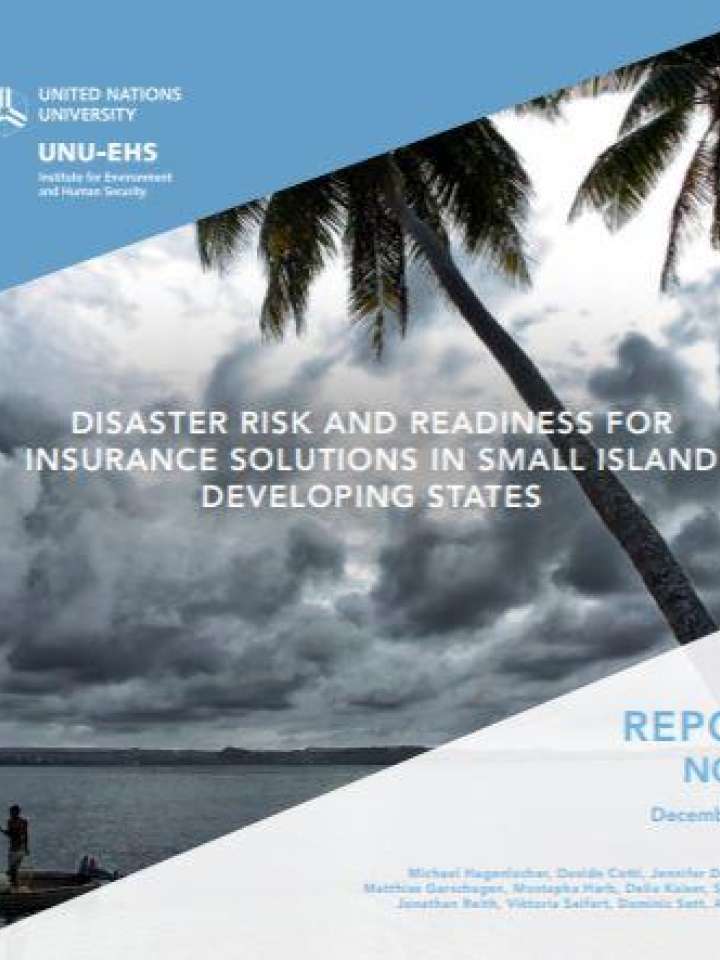Disaster risk and readiness for insurance solutions in Small Island Developing States
This report provides a comprehensive and comparative assessment of current climate and disaster risk for all 38 United Nations Member Small Island Developing States (SIDS), considering also their readiness for insurance solutions thanks to the innovative InsuRisk Assessment tool. Aiming to give deeper insights into current environmental and development challenges, as well as the needs for, and status of, climate risk financing and insurance instruments in SIDS, this report offers transparent and comparable baseline information on countries’ climate and disaster risks and their readiness for risk transfer through insurance solutions. The more differentiated knowledge gained through this report can also guide and focus the international community in identifying where strongest needs are and where coping capacities need to be strengthened.
A number of important key messages emerge from the analysis presented here. First, the prevalent perception of SIDS as ‘hotspots of climate change’ which share a ‘common vulnerability to climate change’ does not reflect the reality. Second, SIDS governments face specific challenges accessing and facilitating access to insurance solutions given their small geographic and market size, making insurance either unaffordable or unavailable as small countries are often unattractive to the private sector. Regional approaches and public-private partnerships can help countries access sovereign risk insurance that is appropriate to their needs. Third, information on climate and disaster risk at the nation-state resolution, as presented in this report, is useful to better understand differences and similarities across SIDS, allow for the identification of priority countries, and ensure that certain high-risk SIDS do not go unnoticed. However, assessments at the sub-national and local scales are needed to better capture the spatial variability of risk and inform targeted risk reduction, risk transfer and adaptation. Lastly, lack of up-to-date, publically available, high-resolution data remains a key challenge for managing risk within SIDS. In order for scientific information to be useful for evidence-based risk management and adaptation, more efforts are needed to systematically collect, manage, and make relevant data and information on natural hazards vulnerability, and climate and disaster risk – as well as the development status of insurance markets – available.
Explore further
